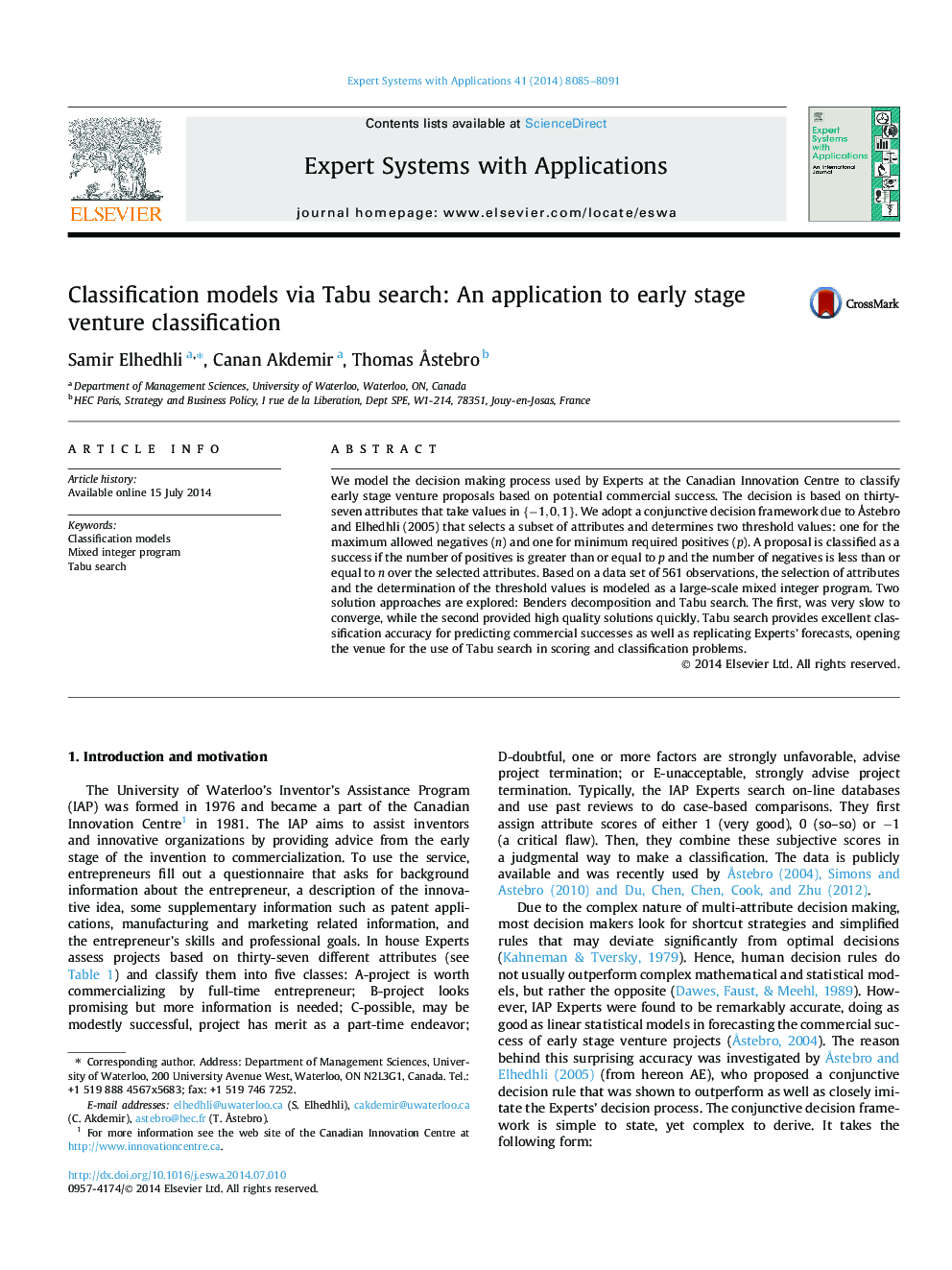| Article ID | Journal | Published Year | Pages | File Type |
|---|---|---|---|---|
| 385929 | Expert Systems with Applications | 2014 | 7 Pages |
•Experts classify early stage venture proposals based on integer-valued attributes.•Model a disjunctive if-then rule as a large-scale mixed integer program.•Explore Benders decomposition and Tabu search.•Tabu search provides excellent classification accuracy.
We model the decision making process used by Experts at the Canadian Innovation Centre to classify early stage venture proposals based on potential commercial success. The decision is based on thirty-seven attributes that take values in {-1,0,1}{-1,0,1}. We adopt a conjunctive decision framework due to Åstebro and Elhedhli (2005) that selects a subset of attributes and determines two threshold values: one for the maximum allowed negatives (n) and one for minimum required positives (p). A proposal is classified as a success if the number of positives is greater than or equal to p and the number of negatives is less than or equal to n over the selected attributes. Based on a data set of 561 observations, the selection of attributes and the determination of the threshold values is modeled as a large-scale mixed integer program. Two solution approaches are explored: Benders decomposition and Tabu search. The first, was very slow to converge, while the second provided high quality solutions quickly. Tabu search provides excellent classification accuracy for predicting commercial successes as well as replicating Experts’ forecasts, opening the venue for the use of Tabu search in scoring and classification problems.
